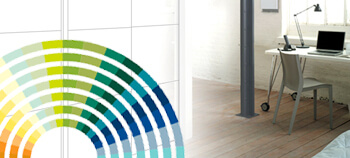
Your home is a reflection of you – or so they say. There’s a field of psychology dedicated to exploring the relationship we have with our homes, and whether we can gauge someone’s personality just by stepping into their home. Whether it’s a scientific fact or not, it is fair to say that people typically style their homes as a reflection of their personalities.
So, what about mess? By that we don’t mean dirt and poor hygiene – we mean the day to day clutter that accumulates in some homes but not in others. Can this clutter, which can be made up of items you use frequently, hoarded treasures or just things you’re hesitant to throw away, actually harm you?
According to studies by the University of South Carolina, a comfortable environment is essential to ‘mental hygiene.’ Secondly, studies from UCLA’s Center of Everyday Lives and Families (CELF) found a link between the stress hormone cortisol and women who have a high density of household objects. The more ‘stuff’ you own, the more likely you are to feel stressed. Clutter has also been found to negatively affect your diet, hurt relationships and threaten safety.
One of the most problematic areas is your bedroom. It’s a space meant for relaxation and rejuvenation – so clutter in a bedroom is even more disastrous than in other rooms in your home. To experience a more harmonious bedroom, it’s time to de-clutter. Here are out top tips for de-cluttering your bedroom.
Confront clutter
The first step to getting rid of clutter is to accept that you have an issue with it and need to cut down. Then, it’s about prioritising which items you genuinely need. It can be tough to actually push yourself to throw out items you feel you may need in the future – but will be a huge positive boost for your overall wellbeing once done.
Keep personal touches under control
Personalising your bedroom with photographs and other mementos is great – but too many personal effects can quickly become cluttered. Worse, they are the exact kind of effects people are hesitant to throw away. Personalising a space can even have diminishing returns on mental health if it becomes cluttered.
Invest in invisible storage
Even once you’ve sorted through clutter, you are likely to still have items you love too much to throw away. If that’s the case, invisible storage units such as under-bed storage and sliding door wardrobes help you declutter your space without actually adding to the clutter.






